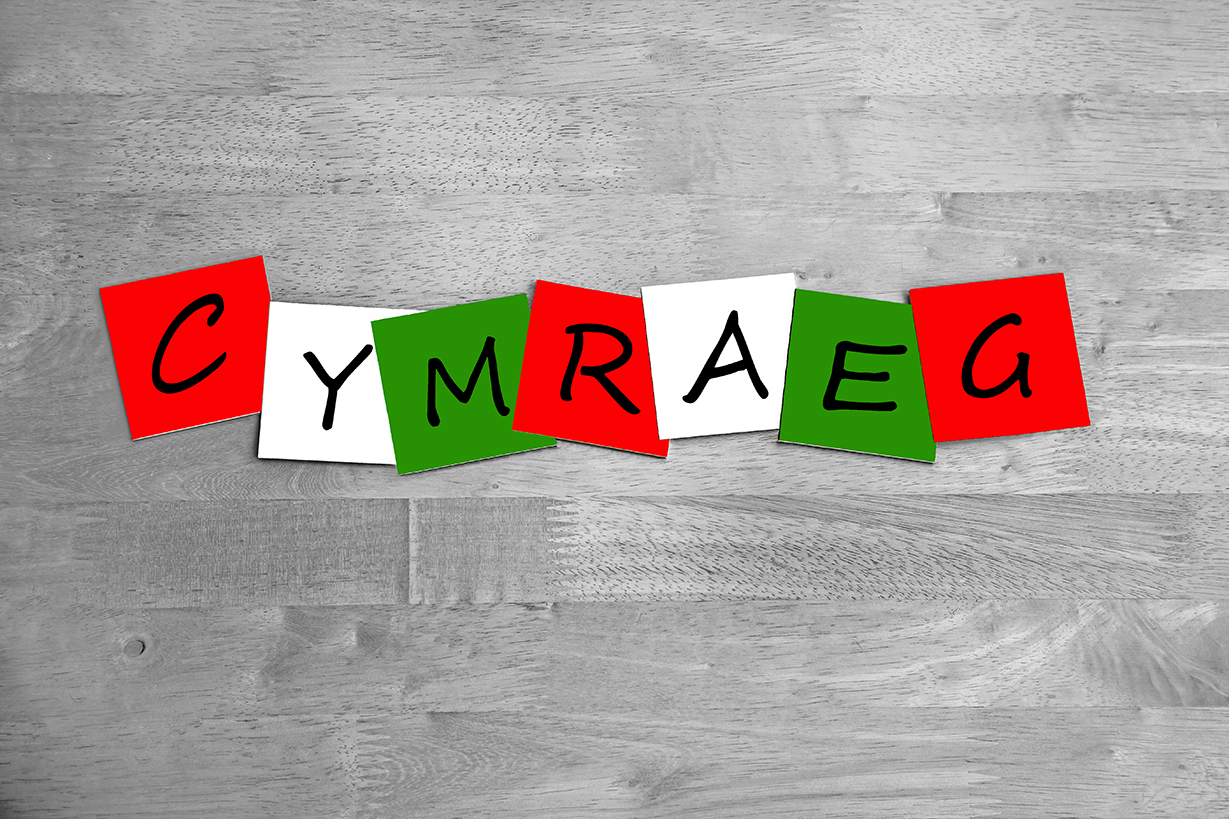
Since 2017, Data Cymru has committed to comply with the Welsh Language Standards, as set out by the Welsh Government under Section 44 of the Welsh Language (Wales) Measure 2011. These standards set clear expectations for us to provide services in Welsh to our customers, and to promote the use of the Welsh language for all services. It includes standards we must comply with in service delivery, policy making, operations and record keeping.
Recently, there has been an internal drive to use Welsh more frequently and more organically at work and to be able to provide more services, where possible, through the Welsh language. To encourage Welsh learning and speaking in the office among staff in both informal and formal settings we’ve committed to a ‘Coffi Cymraeg’ once a month. These meetings are an opportunity for learners to practice, for fluent Welsh speakers to keep-up and even those with little to no Welsh* are welcome to come along and listen.
At Data Cymru we’re committed to continued development and learning for our staff and so, in July, our Chief Operating Officer, Richard Palmer, and I headed out on the road to Nant Gwrtheyrn in North Wales for a week-long residential Welsh language refresher course.

Nant Gwrtheyrn is home to the National Welsh Language and Heritage Centre, offering both online and residential courses for every level of learning Welsh. Set on the idyllic northern coast of the Llyn Peninsula it’s private and secluded settings offer a unique, immersive experience.
Our five day course began with an introductory session, a chance to get to know our other course-mates and to set some goals. These were wide-ranging but the same themes emerged for everyone: the want for confidence, help with treiglo (mutations) and some practical improvements for using Welsh at work. I subscribed to all of these learning goals but also a want to enjoy using Welsh.
It amused me that we were all so impressed with each other’s Welsh language skills and quite ready to disparage our own. Why are the Welsh so reluctant to sing their own praises? Because, despite all of us being able to talk fluently and at length, on a range of different topics, we all felt we didn’t “have enough Welsh” or “weren’t good enough”. If you think the Brits over-apologise, wait ‘til you meet ten eager but nervous Welsh speakers trying to improve their language skills.
Our tutor for the week took us through some established course content as well as being flexible enough to help us with specific queries or goals. An ideal blend, of grammar lessons, presentation work and siarad fel pwll y mor “talking non-stop”.
We were fortunate, though I suspect this is a highly common phenomenon at Nant Gwrtheyrn, to have bonded as a group quickly and to all feel comfortable in sharing, challenging and quizzing each other.

By the end of the third day, I found I was thinking and writing in Welsh without having to prompt myself to do so first. And by Friday, I didn’t feel like I was translating from English to Welsh before talking, I was, in the main, really talking Welsh! Not bad for someone who hasn’t used Welsh at any real length since my GCSE’s.
Both Richard and I couldn’t sing the Nant’s praises more highly - and we’d been lucky enough to enjoy a good sing-song with the group and fellow attendee, singer-songwriter Eve Goodman!
There are plenty of other Data Cymru staff who will now look to attend courses at the Nant, from beginners to refresher courses, online and residential. Richard has even signed up to the written refresher course.
As a result of my experience and support from Data Cymru I’ve now delivered several training courses in Welsh. I’ve also sent emails and hosted meetings in Welsh. It’s our ambition to offer Welsh language training sessions (rather than our current offer which is to provide simultaneous English to Welsh translation if at least 10% of those attending wish to use Welsh).

It was a privilege to have attended Nant Gwrtheyrn and I’m delighted to be working at Data Cymru, where we encourage using Welsh not only because of our commitment to the Welsh Language Standards but because for some of us, working in Welsh just makes sense.
*Personally, I refute the idea that anyone living in Wales has “no Welsh” because, yes, “Rydw i’n hoffi coffi” does count and most people know at least a word, shwmai or Cymru, for example.
About the author